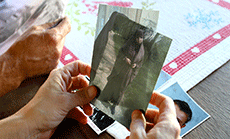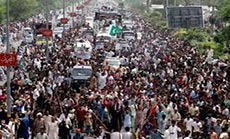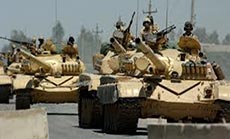July War Cables- Hamadeh: There Might Be Need for More Destruction

TFLE01: JUMBLATT AND HAMADE ON TWO-PHASE SOLUTION
id: 73830
date: 8/6/2006 7:27
refid: 06BEIRUT2540
origin: Embassy Beirut
classification: CONFIDENTIAL//NOFORN
destination:
header:
VZCZCXRO1749
PP RUEHAG RUEHBC RUEHDE RUEHKUK
DE RUEHLB #2540/01 2180727
ZNY CCCCC ZZH
P 060727Z AUG 06 ZDK
FM AMEMBASSY BEIRUT
TO RUEHC/SECSTATE WASHDC PRIORITY 4913
INFO RUEHEE/ARAB LEAGUE COLLECTIVE PRIORITY
RUCNMEM/EU MEMBER STATES COLLECTIVE PRIORITY
RUEHNO/USMISSION USNATO PRIORITY 0019
RHEHNSC/NSC WASHDC PRIORITY
RHMFISS/CDR USCENTCOM MACDILL AFB FL PRIORITY
----------------- header ends ----------------
C O N F I D E N T I A L SECTION 01 OF 02 BEIRUT 002540
SIPDIS
NOFORN
SIPDIS
NSC FOR ABRAMS/DORAN/SINGH/HARDING
E.O. 12958: DECL: 08/04/2016
TAGS: IS, LE, MOPS, PREL, PTER, SY
SUBJECT: TFLE01: JUMBLATT AND HAMADE ON TWO-PHASE SOLUTION
1. (C/NF) SUMMARY: On August 4 A/S Welch, Ambassador, and
PolOff attended a dinner hosted by Marwan Hamade, Minister of
Telecommunications, and attended by Walid Jumblatt, leader of
the Druze community and the Progressive Socialist Party.
Jumblatt warned that what he described as Israel's
ineffective ground operations and intelligence is a danger
for Israel and the region. Hamade and Jumblatt expressed
hesitancy about a two-resolution UNSCR approach to end the
fighting. They believe that Hizballah will fire upon the
Israeli army if it remains in southern Lebanon, even if a
cease-fire is agreed upon. They think it is useful to
increase pressure on the south to coax Speaker Berri and
Hizballah into a cease-fire. Finally they believe that for
Lebanon to become stronger, the ties between Iran and Syria
must be weakened. END SUMMARY
Culture of Death
----------------
2. (C/NF) Jumblatt expressed regret that, in his view, Israel
failed to assess Hizballah,s operations on the ground. He
questioned how Israel was completely taken by surprise on
July 12. He concluded that today the tables have turned to
Hizballah's advantage as the organization is founded on a
"culture of death." Hizballah fighters want to die as
martyrs and will not hesitate to blow themselves up to kill
Israelis. In addition, there is a new generation of Israeli
soldiers that are not as driven and motivated as their
predecessors. He thinks this was illustrated in the past
weeks of fighting and warns that it is dangerous for Israel
and the region for this to be revealed.
Cease Fire Not
At Any Price
------------
3. (C/NF) Hamade expressed concern over the two resolutions
for a cease-fire that will be proposed by the UN instead of
one proposal that addresses all concerns at one time. A/S
Welch explained that this was a compromise between the U.S.
and the French. After extensive consultations with the
Israelis, the U.S. believed that a cease-fire is not possible
without a new capable stabilization force, while the French
argued that a stabilization force is not possible without the
cease-fire. The two-resolution solution ends the violence,
which is important for Lebanon and the Lebanese people.
Jumblatt exclaimed that Lebanon wants a cease-fire, but not
one at just any price.
4. (C/NF) Ambassador noted that PM Siniora had argued for a
one-phase plan, saying that there must be momentum. Siniora
had suggested that the LAF immediately deploy upon a
cease-fire. Jumblatt and Hamade both agreed that Siniora's
approach would not work. In their view, the army is not
entirely reliable, and Hizballah will remain armed and
dangerous in the south if there is no international force.
5. (C/NF) But Hamade and Jumblatt were also skeptical about
the two-phase sequencing. If the IDF stays in place
temporarily, Hizballah will fire upon the Israelis -- even if
a cease-fire is agreed upon in a first resolution. That
would essentially scuttle the possibility for implementation
of a second resolution, as no international force will come
to Lebanon while Hizballah is firing粑on Israeli Army. Just
as Hizballah, Syria, and Iran want, the fighting will
continue. Jumblatt added that one way to remedy this is for
the Israeli army to partake in a focused ground incursion
that will be more likely to destroy or seriously Hizballah.
But, he shrugged, Israel has already shown that it will not
do this.
6. (C/NF) A/S Welch advised that another way to avoid this
outcome is to gain rapid UN passage of the resolution and for
GOL to quickly accept. The burden will then be on Israel to
do the same and it is up to the international community to
provide the troops for the stabilization force.
Pressure to Influence
Outcome
--------
7. (C/NF) When asked if the GOL will agree to the resolution
Hamade stated the majority of the government could but
Hizballah would have to ask Iran. Jumblatt added that
Nasrallah will not make the decision to support the
resolution alone. A Shia catalyst will have to pressure
BEIRUT 00002540 002 OF 002
Nasrallah.
8. (C/NF) Hamade nominated House Speaker Nabih Berri to be
the catalyst, though warning that this strategy may not work
because of the influence of Syria and Iran. Nonetheless,
Berri can play the role of a mediator because of his role in
the Lebanese state. Yet to coax Berri, and ultimately
Nasrallah, more destruction and occupation of the Shia south
might be needed, until a Shia leader was ready to say "enough
fighting." Hamade suggested that the occupation of villages
would be blow to Hizballah because before the conflict all
villages were liberated.
9. (C/NF) Both Berri and the Shia constituents themselves
must be convinced to "hold on to what is left" and choose
between having a state or endless war. Berri already sees
that everything that he has built in the south is destroyed,
added Jumblatt. Hamade agreed with the assessment and added
that the Shia are weak. All of the Shia from the south,
except for two villages, have been displaced. There are
weekly disputes between supporters of Amal and Hizballah in
areas where they are displaced. The pressure on the Shia
should continue. Then offer a cease-fire, reconstruction
money and the possibility of Shebaa.
10. (C/NF) Jumblatt and Hamede suggested that A/S Welch
approach Berri with the prestige of being the main Shia
leader in the state apparatus. Be honest with him about the
two-phase resolution, they counseled; indicate to him that
the international community is not asking GOL and GOI to
support the resolution but to accept it as soon as it is
passed.
Marginalize Syria
and Iran
--------
11. (C/NF) Asked about his advice to move the resolutions
forward, Jumblatt advised to "keep the Syrians out." Yet he
admitted not knowing how to do so. Hamade warned that Syria
will try to return to Lebanon. In his view, it is essential
to close and protect the routes to Syria.
12. (C/NF) A/S Welch stressed that the overall objective must
be to strengthen Lebanon. Jumblatt responded that Syria must
be weakened for Lebanon to be strengthened. He praised the
Egyptian and Saudi positions to break the ties between Syria
and Iran. He recommended that a civilian line be created to
transport Lebanese in and out of Lebanon because lines to
Syria should be closed. He added that Syria will loose face
if Lebanese territory is occupied and Shebaa Farms is not
liberated. The Shia will question why Syria did not help
Hizballah.
13. (U) Assistant Secretary Welch has cleared this cable.
FELTMAN
=======================CABLE ENDS============================
Source: Al Akhbar Newspaper
date: 8/6/2006 7:27
refid: 06BEIRUT2540
origin: Embassy Beirut
classification: CONFIDENTIAL//NOFORN
destination:
header:
VZCZCXRO1749
PP RUEHAG RUEHBC RUEHDE RUEHKUK
DE RUEHLB #2540/01 2180727
ZNY CCCCC ZZH
P 060727Z AUG 06 ZDK
FM AMEMBASSY BEIRUT
TO RUEHC/SECSTATE WASHDC PRIORITY 4913
INFO RUEHEE/ARAB LEAGUE COLLECTIVE PRIORITY
RUCNMEM/EU MEMBER STATES COLLECTIVE PRIORITY
RUEHNO/USMISSION USNATO PRIORITY 0019
RHEHNSC/NSC WASHDC PRIORITY
RHMFISS/CDR USCENTCOM MACDILL AFB FL PRIORITY
----------------- header ends ----------------
C O N F I D E N T I A L SECTION 01 OF 02 BEIRUT 002540
SIPDIS
NOFORN
SIPDIS
NSC FOR ABRAMS/DORAN/SINGH/HARDING
E.O. 12958: DECL: 08/04/2016
TAGS: IS, LE, MOPS, PREL, PTER, SY
SUBJECT: TFLE01: JUMBLATT AND HAMADE ON TWO-PHASE SOLUTION
1. (C/NF) SUMMARY: On August 4 A/S Welch, Ambassador, and
PolOff attended a dinner hosted by Marwan Hamade, Minister of
Telecommunications, and attended by Walid Jumblatt, leader of
the Druze community and the Progressive Socialist Party.
Jumblatt warned that what he described as Israel's
ineffective ground operations and intelligence is a danger
for Israel and the region. Hamade and Jumblatt expressed
hesitancy about a two-resolution UNSCR approach to end the
fighting. They believe that Hizballah will fire upon the
Israeli army if it remains in southern Lebanon, even if a
cease-fire is agreed upon. They think it is useful to
increase pressure on the south to coax Speaker Berri and
Hizballah into a cease-fire. Finally they believe that for
Lebanon to become stronger, the ties between Iran and Syria
must be weakened. END SUMMARY
Culture of Death
----------------
2. (C/NF) Jumblatt expressed regret that, in his view, Israel
failed to assess Hizballah,s operations on the ground. He
questioned how Israel was completely taken by surprise on
July 12. He concluded that today the tables have turned to
Hizballah's advantage as the organization is founded on a
"culture of death." Hizballah fighters want to die as
martyrs and will not hesitate to blow themselves up to kill
Israelis. In addition, there is a new generation of Israeli
soldiers that are not as driven and motivated as their
predecessors. He thinks this was illustrated in the past
weeks of fighting and warns that it is dangerous for Israel
and the region for this to be revealed.
Cease Fire Not
At Any Price
------------
3. (C/NF) Hamade expressed concern over the two resolutions
for a cease-fire that will be proposed by the UN instead of
one proposal that addresses all concerns at one time. A/S
Welch explained that this was a compromise between the U.S.
and the French. After extensive consultations with the
Israelis, the U.S. believed that a cease-fire is not possible
without a new capable stabilization force, while the French
argued that a stabilization force is not possible without the
cease-fire. The two-resolution solution ends the violence,
which is important for Lebanon and the Lebanese people.
Jumblatt exclaimed that Lebanon wants a cease-fire, but not
one at just any price.
4. (C/NF) Ambassador noted that PM Siniora had argued for a
one-phase plan, saying that there must be momentum. Siniora
had suggested that the LAF immediately deploy upon a
cease-fire. Jumblatt and Hamade both agreed that Siniora's
approach would not work. In their view, the army is not
entirely reliable, and Hizballah will remain armed and
dangerous in the south if there is no international force.
5. (C/NF) But Hamade and Jumblatt were also skeptical about
the two-phase sequencing. If the IDF stays in place
temporarily, Hizballah will fire upon the Israelis -- even if
a cease-fire is agreed upon in a first resolution. That
would essentially scuttle the possibility for implementation
of a second resolution, as no international force will come
to Lebanon while Hizballah is firing粑on Israeli Army. Just
as Hizballah, Syria, and Iran want, the fighting will
continue. Jumblatt added that one way to remedy this is for
the Israeli army to partake in a focused ground incursion
that will be more likely to destroy or seriously Hizballah.
But, he shrugged, Israel has already shown that it will not
do this.
6. (C/NF) A/S Welch advised that another way to avoid this
outcome is to gain rapid UN passage of the resolution and for
GOL to quickly accept. The burden will then be on Israel to
do the same and it is up to the international community to
provide the troops for the stabilization force.
Pressure to Influence
Outcome
--------
7. (C/NF) When asked if the GOL will agree to the resolution
Hamade stated the majority of the government could but
Hizballah would have to ask Iran. Jumblatt added that
Nasrallah will not make the decision to support the
resolution alone. A Shia catalyst will have to pressure
BEIRUT 00002540 002 OF 002
Nasrallah.
8. (C/NF) Hamade nominated House Speaker Nabih Berri to be
the catalyst, though warning that this strategy may not work
because of the influence of Syria and Iran. Nonetheless,
Berri can play the role of a mediator because of his role in
the Lebanese state. Yet to coax Berri, and ultimately
Nasrallah, more destruction and occupation of the Shia south
might be needed, until a Shia leader was ready to say "enough
fighting." Hamade suggested that the occupation of villages
would be blow to Hizballah because before the conflict all
villages were liberated.
9. (C/NF) Both Berri and the Shia constituents themselves
must be convinced to "hold on to what is left" and choose
between having a state or endless war. Berri already sees
that everything that he has built in the south is destroyed,
added Jumblatt. Hamade agreed with the assessment and added
that the Shia are weak. All of the Shia from the south,
except for two villages, have been displaced. There are
weekly disputes between supporters of Amal and Hizballah in
areas where they are displaced. The pressure on the Shia
should continue. Then offer a cease-fire, reconstruction
money and the possibility of Shebaa.
10. (C/NF) Jumblatt and Hamede suggested that A/S Welch
approach Berri with the prestige of being the main Shia
leader in the state apparatus. Be honest with him about the
two-phase resolution, they counseled; indicate to him that
the international community is not asking GOL and GOI to
support the resolution but to accept it as soon as it is
passed.
Marginalize Syria
and Iran
--------
11. (C/NF) Asked about his advice to move the resolutions
forward, Jumblatt advised to "keep the Syrians out." Yet he
admitted not knowing how to do so. Hamade warned that Syria
will try to return to Lebanon. In his view, it is essential
to close and protect the routes to Syria.
12. (C/NF) A/S Welch stressed that the overall objective must
be to strengthen Lebanon. Jumblatt responded that Syria must
be weakened for Lebanon to be strengthened. He praised the
Egyptian and Saudi positions to break the ties between Syria
and Iran. He recommended that a civilian line be created to
transport Lebanese in and out of Lebanon because lines to
Syria should be closed. He added that Syria will loose face
if Lebanese territory is occupied and Shebaa Farms is not
liberated. The Shia will question why Syria did not help
Hizballah.
13. (U) Assistant Secretary Welch has cleared this cable.
FELTMAN
=======================CABLE ENDS============================
Source: Al Akhbar Newspaper
Comments

FBI: US Girls may Have Tried to join ’ISIL’
10 years ago


